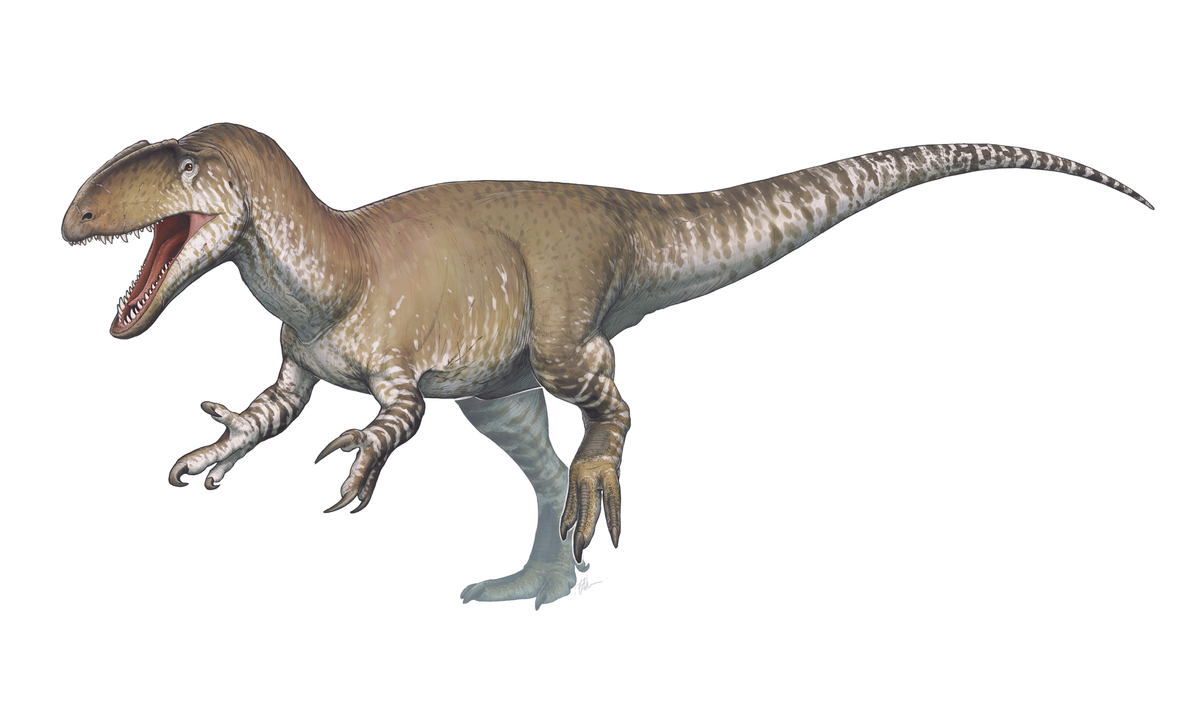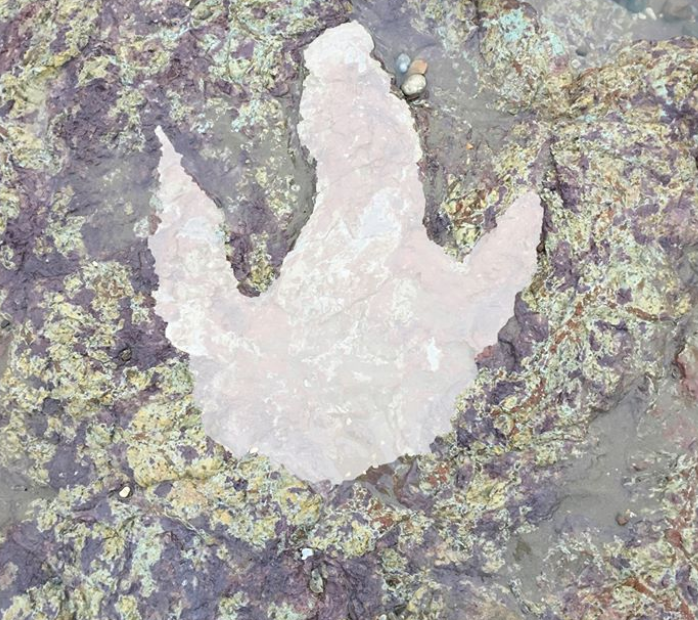The storm Ciara creates massive chaos all across the UK in the past week.
But the heavy wind level also paved the way for an intriguing archaeological discovery as well.
According to the statements by the fossil experts, the strong waves of the wind have revealed a dinosaur footprint that has believed to be present on the Earth around 130 million years ago.
The massive claw-like print was uncovered on the beach situated in the Isle of Wight and is speculated to be of a theropod dinosaur referred to as Spinosaurus Baryonx or Neovenator. Both these names sound pretty cool; don’t you all think?
Neovenator means a new hunter and used for a carnivorous dinosaur, which was reportedly 7.5 meters long and could weigh up to two tonnes. Spinosaurus Baryonyx, on the other hand, belongs to the same family, but its diet mainly included fishes.
Carnivorous or not, it would be scary as well to see a dinosaur when you are relaxing on the beach, especially in the relaxing coastal Sandown region where the experts found the footprint.
This peculiar footprint was found on February 12th, by Wight Coat Fossil Group. They shared photos of their discovery.
The experts explained that the pointed toes might be an indication of a huge theropod, most likely to be a Neovenator or the Spinosaur Baryonyx.
The footprint is preserved in paleosol, which is an ancient soil horizon that represents the region of swampy overbank that are dried and flood depending on the season.
The tracker tracked the environment to be 130 million years ago, which heads towards the southwest, which is now Sandown Bay. So the rest of the prints are now submerged in the boggy soil of the bay.
Share this post with your friends and family.
Recommended Video:
“Little Girl Speaks To And Has Wild Animals Follow Her Like A Real-life Doctor Dolittle”
[rumble video_id=v5dai5 domain_id=u7nb2]
If you liked this post, we would love to hear from you :)





